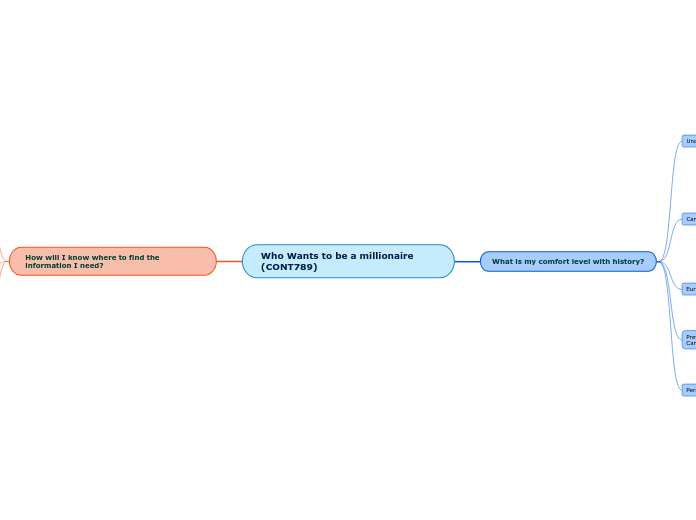Who Wants to be a millionaire (CONT789)
How will I know where to find the information I need?
Ministry sources
The Ontario Curriculum for Canadian and World Studies.
Eg: TVO in the classroom and VLE.
Ministry created content on Virtual Learning Environment. However, I am only familiar with how to access these from within my school board. I would assume that all teachers have access via their own school board.
Experts beyond the school
material created by other professionals
Eg: Canadian/Britannia/Universalis Encyclopedia, Curio, EBSCO databases, learn360,hot docs.
There are some really great resources put out there by other professionals on various platforms. However, care must be taken to ensure the accuracy and purpose of the material is considered before presenting to students.
Guest speakers/Primary sources
Eg: Canadian Museum of History, Library and Archives Canada, local/online libraries and databases.
We must recognize external organizations that are dedicated to preserving and teaching history as a valuable source. This may include human and non-human resources
In school experts
Colleagues including other history teachers
Teacher-librarian
Department head
In my experience, there are many experts within schools that may help point me in the right direction when I am looking for more historical information or pedagogic strategies. I am a firm believer in fostering collaborative environments to help elevate each other's teaching practices in order to meet our student's needs.
What is my comfort level with history?
Personal history
Interest in learning more about my personal familial history has been an driving factor to learn more about history from a inter-personal and individualistic perspective as well as a collective history.
Previously taught some aspects various worldviews including: Canadian, European, Asian, Aztec societies
Spanish and Aztec worldviews in conflict.
Renaissance European worldview/history and how it may have impacted Canadian worldview.
Japanese cultural isolation during the Edo period.
Euro-Asian history
This is an area I would like to develop further out of personal interest, and also because it allows us to see the context surrounding global impacts of local decisions, ideologies, policies/legislation and historical events.
Canadian History
I have also taught some Canadian history in a social studies classroom, studying various ideologies, confederation, migration of Canadians, as well as how these topics have previously and continue to shape Canadian identities today.
I also believe it is our responsibility to contribute to our collective historical identity.
As a Canadian, I feel that it is my responsibility to learn about our history as a nation and also as a collective yet distinct people.
This is an ongoing process and goes to building a bigger picture/context around what we already have accepted. Sometimes this will also challenge and change our preconceived ideas about our history.
Undergrad courses
My undergrad minor was history, so I took various history courses.
Courses included: Canadian, Modern China, 19th/20th century European, 20th century Russia, and Anglo-Saxon England.
Mostly a good learning experience, from which I was able to further develop my historical inquiry skills.

